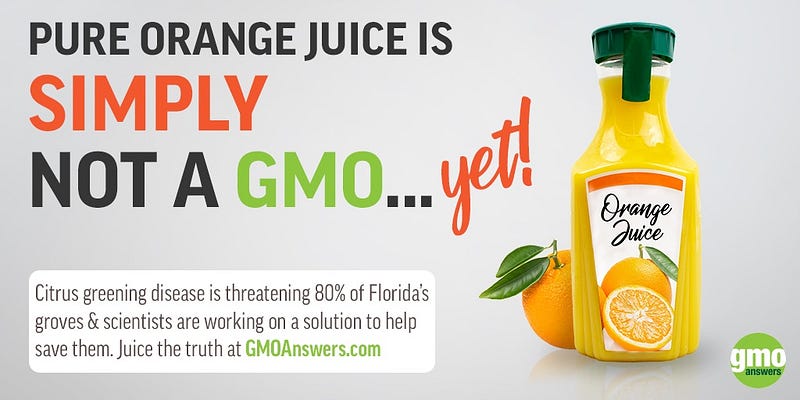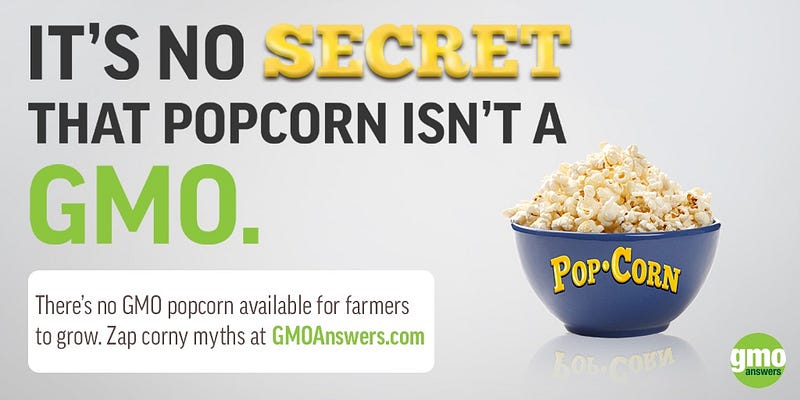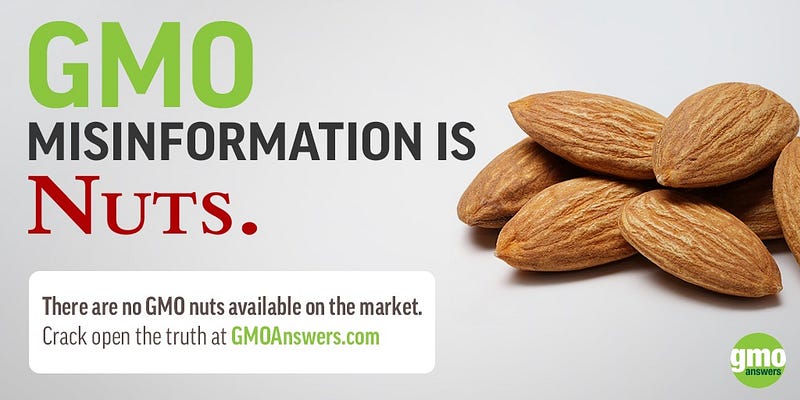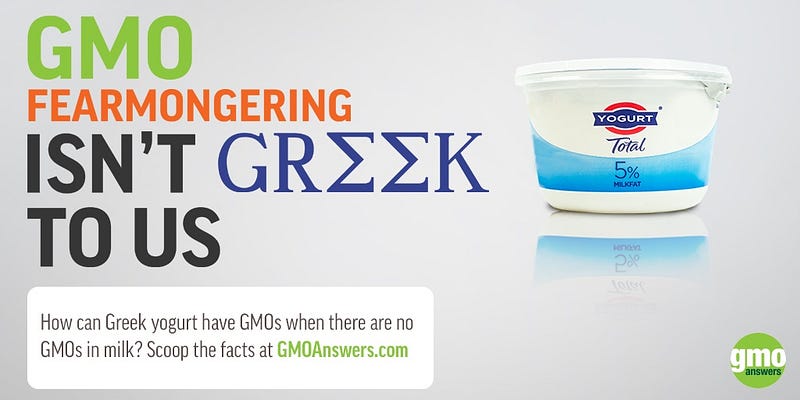Confronting Misinformation and Fearmongering…One Brand At A Time
This post was originally published on GMO Answers' Medium page.
Public opinion on GMOs is often driven by misinformation and myths, despite scientific consensus that GMOs are safe to eat and nutritionally equivalent to their non-GMO counterparts. While some brands, like Campbell’s and Betty Crocker, have sought to educate consumers about GMOs rather than play into their fears, others are simply spreading confusion.
Many brands tout their products as non-GMO even when their products contain ingredients that couldn’t possibly contain GMOs to begin with.
To help stem the tide of dishonest labeling, we developed a series highlighting products commonly labeled as non-GMO despite having no GMO alternatives.
- Pure Orange Juice: There are no GM oranges on the market…yet, that is. Scientists are working on a solution to combat citrus greening, a disease threatening an estimated 80% of Florida’s citrus trees. But until this solution is reached, pure orange juice labeled as non-GMO is simply a marketing ploy:

- Popcorn: Popcorn is different from field corn, waxy corn and sweet corn — and genetically modified popcorn does not exist. That’s why we looked to pop this myth:

- Nuts: If there’s anything nuttier than GMO misinformation, it’s this: some nuts are labeled as non-GMO when there are no GMO-nuts to begin with:

- Greek Yogurt: There are no GMOs in milk, so any suggestion of a GMO alternative for Greek yogurt is nothing more than mythology:

- Pasta: There’s no GMO wheat on the market, despite what some pasta brands would have you believe. We looked to fill forks with facts, not fear:

Consumers have a right to know when brands are trying to cash in on fears to sell their products. When browsing the grocery store aisles, one way to determine the authenticity of a non-GMO label is to check if the ingredient list contains one of the 10 GMO crops approved for sale in the U.S. It’s time to shed light on brands that are putting their bottom lines ahead of informed consumer choice.